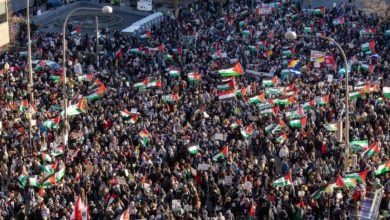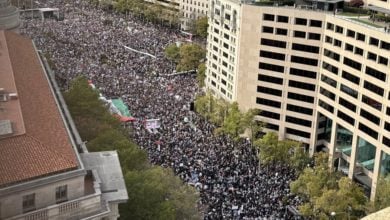Photo: Pedro Castillo addressing supporters in Cusco
Peru’s National Jury of Elections (JNE) declared today that Pedro Castillo is the official winner of last month’s presidential election. This officially marked the defeat of attempts by far right contender Keiko Fujimori to overturn the democratic will of the Peruvian people with false allegations of fraud. A review completed by the JNE found that Castillo had received 44,058 votes more than Fujimori, clearing the path to Castilo’s official victory.
Castillo is a rural teacher and labor leader who rose to prominence as the leader of a major strike in 2017. He was the candidate of the political party Peru Libre (Free Peru), founded on the ideas of Karl Marx, Vladimir Lenin and José Carlos Mariátegui. Fujimori is facing major corruption charges and is the daughter of former fascist dictator Alberto Fujimori, who ruled the country from 1990 to 2000.
Castillo’s victory in the June 6 election, made possible by overwhelming support among Peru’s long-excluded rural working class, was immediately challenged. After the votes were counted, elites rallied around the Fujimori family to steal the election using bogus fraud charges. Vladimiro Montesinos, Alberto Fujimori’s right-hand man and well-known CIA asset, was caught on audio instructing Fujimori’s campaign to bribe members of the election commission with $1 million each. Montesinos is also heard asking Fujimori’s campaign to involve the CIA and the United States Embassy in Peru to help with rigging the outcome in Fujimori’s favor in what he called “unconventional warfare”.
Despite all the illegal attempts at fraud, Castillo’s campaign prevailed with huge support from the countryside and working class people from all parts of the country. While the electoral council dragged their feet for weeks as they considered Fujimori’s ridiculous objections, it was the people who mobilized to defend the vote. These pro-Castillo mobilizations were crucial in securing today’s outcome. They involved not only Peru Libre, but a wide range of trade unions, left wing political organizations and social movements united in defense of democracy.
Castillo ran a campaign that proposed changes to drastically challenge the current neoliberal capitalist economic order constructed in large part under Alberto Fujimori’s rule. In recent years, Peruvian politics has been torn apart by corruption scandals embroiling large numbers of top ranking politicians from a variety of establishment parties. Millions of Peruvians have taken to the streets during this period demanding an end to the rule of corrupt officials and the social injustices they help uphold. This movement put forward the demand for the creation of a constituent assembly to write a new constitution for Peru — which became a central piece of Castillo’s campaign.
Conditions for workers in Peru have been horrific during the COVID-19 pandemic, with poverty and hunger skyrocketing as the death toll from the disease mounts. People are urgently searching for an alternative to address the deep inequality and injustices in society.
There is no doubt about why Castillo won the election. He ran a campaign that challenged those who have ruled Peru for so long at the expense of the majority. As the fight to simply have his electoral victory legally recognized shows, the people’s movement will be decisive in determining whether or not this struggle against the elite is successful.






